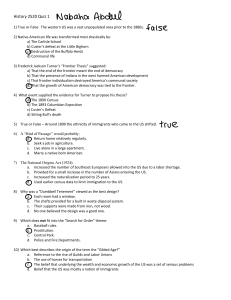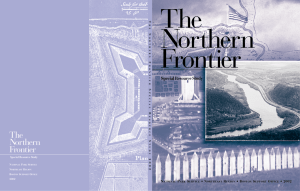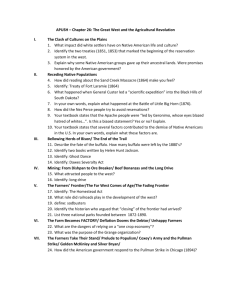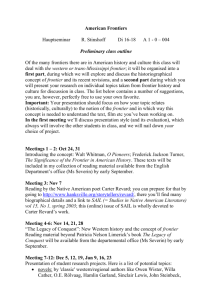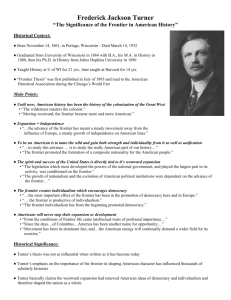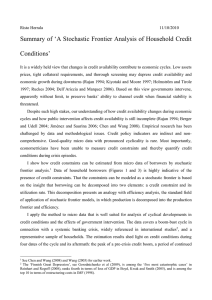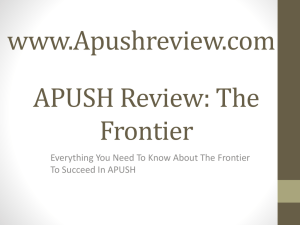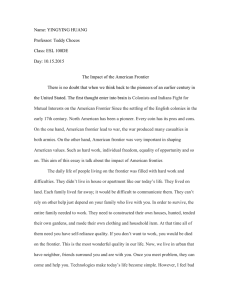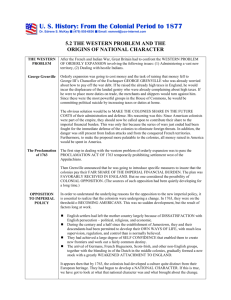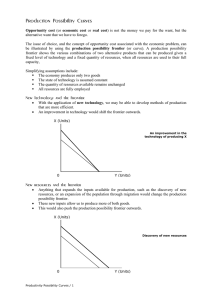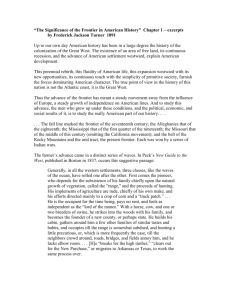File - AndAllThat.co.uk
advertisement
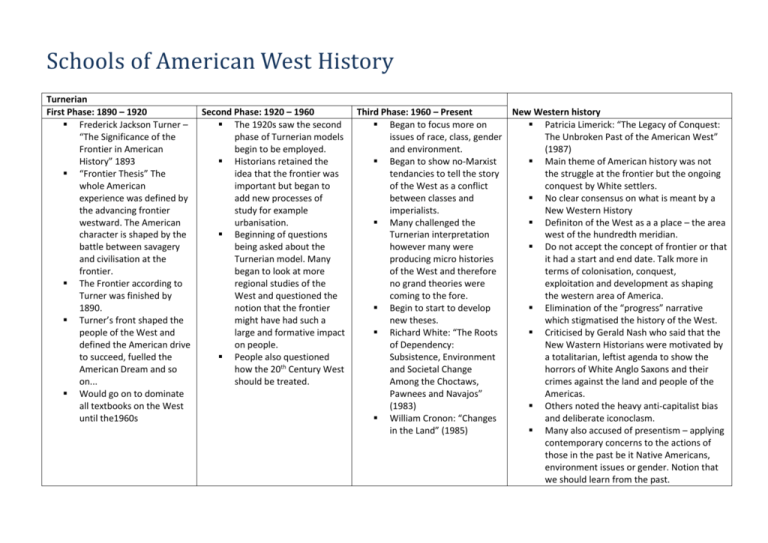
Schools of American West History Turnerian First Phase: 1890 – 1920 Frederick Jackson Turner – “The Significance of the Frontier in American History” 1893 “Frontier Thesis” The whole American experience was defined by the advancing frontier westward. The American character is shaped by the battle between savagery and civilisation at the frontier. The Frontier according to Turner was finished by 1890. Turner’s front shaped the people of the West and defined the American drive to succeed, fuelled the American Dream and so on... Would go on to dominate all textbooks on the West until the1960s Second Phase: 1920 – 1960 The 1920s saw the second phase of Turnerian models begin to be employed. Historians retained the idea that the frontier was important but began to add new processes of study for example urbanisation. Beginning of questions being asked about the Turnerian model. Many began to look at more regional studies of the West and questioned the notion that the frontier might have had such a large and formative impact on people. People also questioned how the 20th Century West should be treated. Third Phase: 1960 – Present Began to focus more on issues of race, class, gender and environment. Began to show no-Marxist tendancies to tell the story of the West as a conflict between classes and imperialists. Many challenged the Turnerian interpretation however many were producing micro histories of the West and therefore no grand theories were coming to the fore. Begin to start to develop new theses. Richard White: “The Roots of Dependency: Subsistence, Environment and Societal Change Among the Choctaws, Pawnees and Navajos” (1983) William Cronon: “Changes in the Land” (1985) New Western history Patricia Limerick: “The Legacy of Conquest: The Unbroken Past of the American West” (1987) Main theme of American history was not the struggle at the frontier but the ongoing conquest by White settlers. No clear consensus on what is meant by a New Western History Definiton of the West as a a place – the area west of the hundredth meridian. Do not accept the concept of frontier or that it had a start and end date. Talk more in terms of colonisation, conquest, exploitation and development as shaping the western area of America. Elimination of the “progress” narrative which stigmatised the history of the West. Criticised by Gerald Nash who said that the New Wastern Historians were motivated by a totalitarian, leftist agenda to show the horrors of White Anglo Saxons and their crimes against the land and people of the Americas. Others noted the heavy anti-capitalist bias and deliberate iconoclasm. Many also accused of presentism – applying contemporary concerns to the actions of those in the past be it Native Americans, environment issues or gender. Notion that we should learn from the past.
